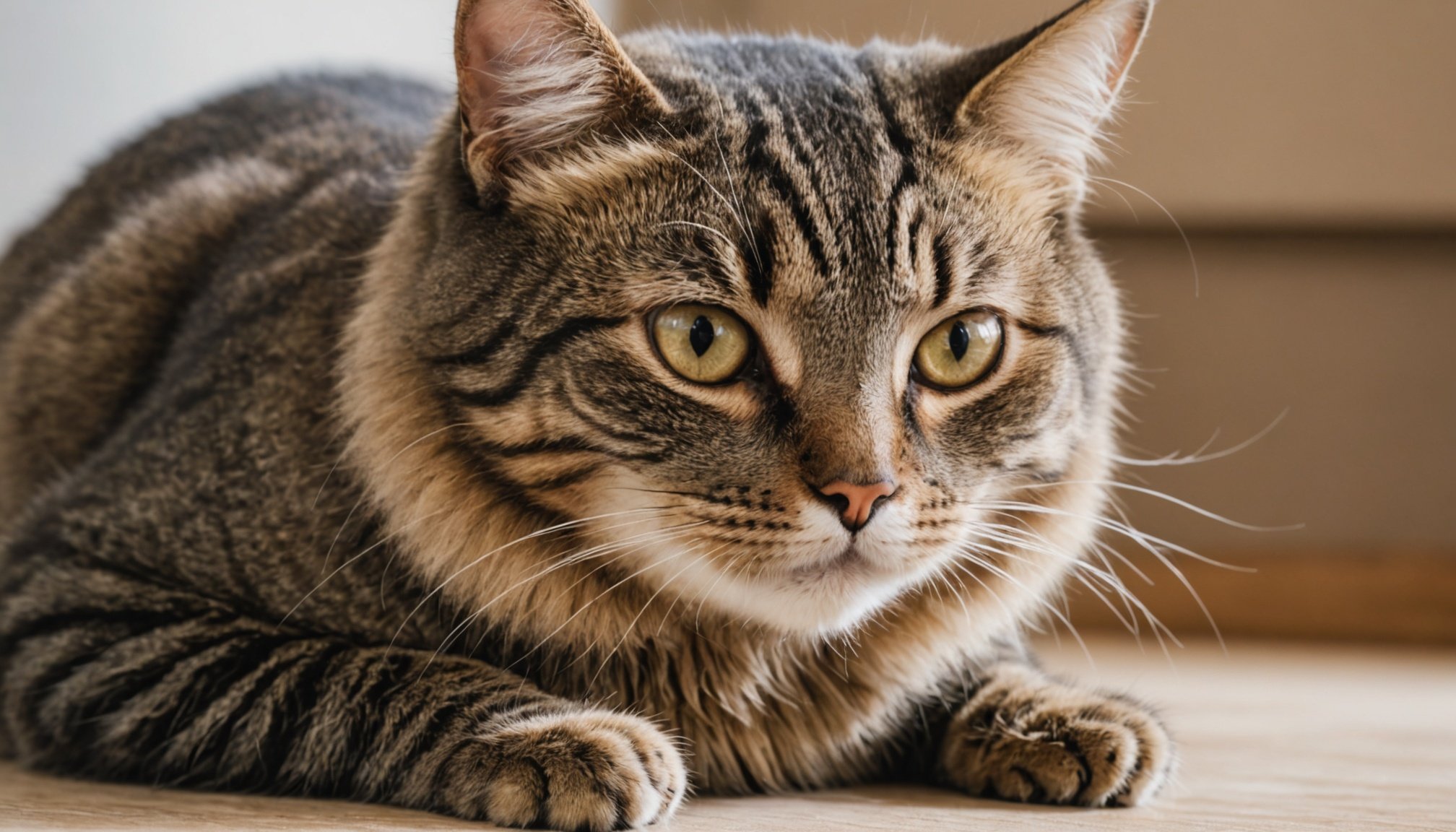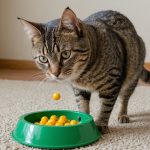Understanding Probiotics for Cats
Providing probiotics for cats is an emerging trend aimed at enhancing cat digestive health. But what exactly are probiotics? In simple terms, probiotics are live microorganisms, mostly bacteria, that offer health benefits when consumed in adequate amounts. They play a critical role in maintaining a healthy balance of gut flora, which is essential for the proper function of a cat’s digestive system.
The importance of gut flora balance in cats cannot be overstated. Much like in humans, a balanced gut microbiome helps with the digestion of food, absorption of nutrients, and even the immune response. An imbalance, however, might contribute to digestive disorders, stress, and other health issues.
A découvrir également : Essential Tips for Easing Your Pet into Life with a New Baby at Home
Among the various probiotic strains, some appear to be particularly beneficial for our feline friends. Common strains such as Lactobacillus acidophilus, Bifidobacterium, and Enterococcus faecium can be found in many supplements available on the market. These probiotics help enhance nutrient uptake and can aid in alleviating digestive discomfort or irregularities. With the increasing recognition of their potential benefits, probiotics have become an integral part of maintaining optimal cat digestive health, paving the way for happier and healthier pets.
Types of Probiotics Suitable for Cats
Understanding the type of probiotics that are suitable for felines is crucial for ensuring their health. Probiotics come in various forms and include different strain variations that cater to specific digestive needs and preferences.
Dans le meme genre : Essential Tips for Easing Your Pet into Life with a New Baby at Home
Natural vs. Commercial Probiotics
Natural probiotics are found in fermented foods like kefir, but many cat owners prefer commercial feline probiotics due to their specific strain combinations tailored for cats. Commercial probiotics, often available as powders, are formulated to address specific digestive issues, providing a consistent and controlled dose.
Powdered, Liquid, or Capsule Forms
Probiotics come in powdered, liquid, or capsule forms. Powdered probiotics are easy to mix with food, making them a convenient choice for picky eaters. Some cats may prefer liquid probiotics, which can be mixed with water or food, while capsules may suit owners who prefer a precise dosage.
Probiotics with Prebiotics Included
Some probiotics include prebiotics, which are non-digestible fibers that feed beneficial bacteria. These combinations often improve efficacy and can help enhance the overall health of a cat’s gut microbiome. When selecting a probiotic, consider factors like your cat’s digestive health, preferences, and any specific dietary needs they may have.
Recommended Dosages for Cats
When considering probiotic dosage for your feline companion, it’s crucial to follow general guidelines aligned with your cat’s size and health. For most cats, the typical suggestion is to administer a dosage that matches their body weight. Generally, this means smaller cats require less probiotics compared to their larger counterparts.
Understanding your cat’s specific weight is essential. For instance, a cat weighing 5 kg may need a different dosage compared to one weighing 8 kg. Each cat’s health also plays a pivotal role in determining dosage calculations. Cats dealing with specific health issues, such as digestive disorders, might need an adjusted probiotic intake. In such cases, increasing or decreasing the recommended dosage can depend on the condition’s severity.
It is imperative to consult with a veterinarian before making any changes to your cat’s probiotic intake. Professional advice ensures that dosage adjustments are safe and effective, aligning with your pet’s unique needs. Consulting with a vet not only tailors the treatment but also prevents potential side effects from inappropriate dosage. Adhering to these cat weight guidelines ensures your pet receives the maximum benefit from probiotics while maintaining their overall health.
Benefits of Probiotics for Cats
Providing cats with probiotics offers numerous health benefits. One of the primary advantages is the improvement of digestive health. By introducing beneficial bacteria into your cat’s gut, probiotics help reduce gastrointestinal issues, such as diarrhea, constipation, and bloating. These improvements lead to a happier and more comfortable pet, free from frequent digestive discomforts.
In addition to aiding digestion, probiotics play a role in enhancing your cat’s immune function. A healthy gut contributes to a robust immune system, which helps prevent infections and diseases. Probiotics act as a natural defense mechanism, fortifying your cat’s body against various pathogens.
Furthermore, using probiotics can help prevent future digestive health problems. By maintaining a balanced gut flora, probiotics contribute to the overall well-being of your cat, ensuring a longer and more fulfilling life. Preventative care is crucial, and probiotics offer a simple yet effective solution to safeguard your pet’s health.
Incorporating probiotics into your cat’s diet requires a careful selection of strains suitable for feline health. By doing so, the multitude of advantages can be maximized to ensure your furry friend thrives.
Potential Side Effects of Probiotics
While probiotics can be beneficial, it is crucial to understand potential side effects that might affect cats. Reactions can range from mild to severe, depending on the individual cat’s sensitivity to the supplement.
Common adverse reactions
Cats may experience mild gastrointestinal symptoms, such as diarrhea or gas, when initially introduced to probiotics. These side effects are usually temporary as the cat’s body adjusts to the new supplement. In rare cases, more serious reactions like vomiting or loss of appetite might occur, signalling a need for further evaluation.
When to consult a veterinarian
If adverse symptoms persist or you observe a sudden change in your cat’s behaviour or health, it is prudent to consult a veterinarian immediately. They can offer guidance on whether the probiotic is safe for your feline friend or if alternative treatments are necessary.
Dosage modifications for sensitive cats
For cats identified as sensitive to probiotics, implementing gradual dosage modifications is critical. Start with a lower dose and gradually increase it to observe your cat’s response. This vigilant approach helps in preventing adverse effects and ensures the supplement’s efficacy. Monitoring your cat’s health is essential in fostering a positive experience with probiotics.
Expert Opinions on Probiotics for Cats
Understanding the potential benefits of probiotics for feline health is crucial, yet, wise choices must be informed by expert advice. Veterinary professionals provide invaluable insights into probiotics’ role in promoting a balanced gut ecosystem. They emphasise the need for considering individual cat needs with veterinarian assessments.
Veterinary insights reveal that while general recommendations support probiotics for digestive and immune health, specifics can vary based on a cat’s unique health profile. Probiotics can alleviate issues like diarrhoea and stress-induced digestive problems and may also enhance overall well-being.
A careful analysis of studies illustrates promising results, supporting probiotics as a beneficial supplement in feline diets. Nonetheless, studies also suggest varied effects; therefore, not all cats may experience the same benefits. This variability underscores the importance of professional guidance.
Engaging with veterinary experts ensures that probiotics are tailored correctly, respecting an individual cat’s lifestyle and existing health conditions. Consulting with a qualified veterinarian will help evaluate whether a probiotic supplement is suitable and which strains or products are preferable.
Proactive engagement with veterinarians helps to address the complexities of feline health holistically, ensuring that any introduction of probiotics into a cat’s diet is both safe and effective.
How to Introduce Probiotics to Your Cat’s Diet
When considering introducing probiotics to your cat’s diet, gradual steps ensure a smooth transition and promote optimal health.
Gradual introduction techniques
To begin, introduce dietary changes slowly over several days. Mix a small portion of the new probiotic supplement with your cat’s current diet. This allows their digestive system to adjust, reducing the risk of upset. Adjust the amount gradually, monitoring your cat’s tolerance and response.
Incorporating probiotics into meals
Blend the probiotics into your cat’s meals to seamlessly integrate them. Choose flavourless options or ones designed for cats’ tastes. For picky eaters, you might need creativity. Try mixing the probiotic with a little wet food or a treat they enjoy to mask the taste and texture, making the process enjoyable.
Monitoring behavior and response
Pay close attention to your cat’s behaviour and physical responses during this transition to ensure their cat health remains optimal. Look for signs of successful adaptation like improved appetite and energy levels. Potential issues could include diarrhea or vomiting, indicating the need to reassess the approach. If these persist, consult with your veterinarian. They can offer tailored advice to ensure that the transition to probiotics is beneficial and smooth for your furry friend.
Recognizing Digestive Issues in Cats
Understanding your cat’s digestive health signs is crucial for maintaining their overall well-being. Common symptoms of digestive problems in cats include vomiting, diarrhea, and changes in appetite. It’s essential to monitor these symptoms closely, as early detection can significantly improve treatment outcomes. For instance, if your cat starts exhibiting unusual behaviours, such as frequent vomiting or decreased appetite, it might be time to consult a veterinarian.
Veterinary consultation not only helps in identifying specific issues but also guides pet owners on the appropriate steps to take. The connection between probiotics and symptom relief is an essential consideration. Probiotics often play a beneficial role in managing digestive issues by promoting gut health. Introducing probiotics into your cat’s diet can lead to symptom relief, especially if poor digestive health is suspected.
Identifying problems early can prevent more severe conditions from developing. Remember to note any changes in stool consistency as well, as this is often a tell-tale sign of underlying digestive issues. In summary, staying alert to your cat’s habits and behaviours is key. Plus, a proactive approach with the help of your veterinarian could greatly enhance your cat’s quality of life.










